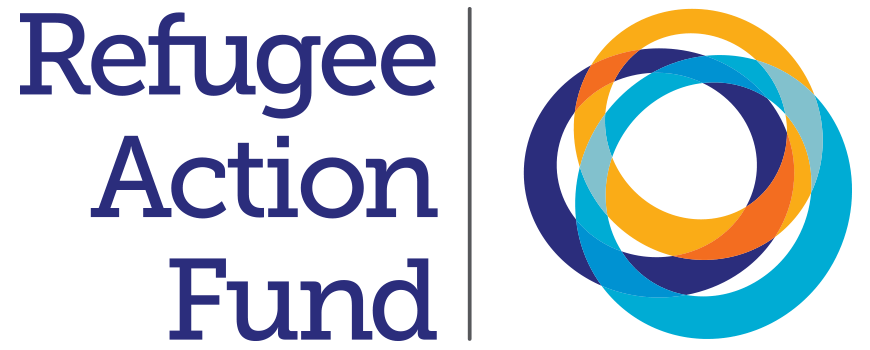By Julie Gersten
Recently, I was invited to travel to Lebanon with the International Refugee Assistance Project, an organization supported by Refugee Action Fund that provides legal advocacy for refugees and displaced people in need of a safe place to call home. The trip was designed to train law students and lawyers to do legal intake on Syrian refugees. IRAP is not only the first organization to provide direct legal services to refugees throughout the process of UNHCR registration, refugee status determination, protection, and resettlement; they also work with law schools and law firms to build the capacity and availability of lawyers to do this critical work. Here are some reflections from my experience.
Sitting on the airplane to Beirut, I tried to prepare myself for meeting refugee families whose lives are engulfed by hardship. I reviewed the 10-page legal intake form I received from the International Refugee Assistance Project. The questions go on and on, probing the most specific and personal details of people’s lives and their trauma.
Six days later, when I sat in a room across from a Syrian family desperate to resettle to a country where their son could get treatment for his serious medical condition, I was surprised to learn that neither of the parents could read.
There they sat, behind two large piles of paperwork—medical exam results, prescriptions, doctor’s notes, registration papers with UNHCR (the United Nations Refugee Agency), referral notes for social services and psycho-social support that will never be enough to meet their needs, and government IDs for them and their five children—and they couldn’t read or confirm the accuracy of any of it. How could two illiterate people possibly navigate this complex legal process, let alone life in an unfamiliar new place? Nearly three hours into the interview, when we asked a seemingly innocuous question, I learned the grotesque details of the torture this family had endured, which is common among victims of intense trauma. Despite their unconscionable suffering, I saw this couple’s great resilience and the tenacity of the human spirit. And I heard in their story humanity’s darkest potential to do harm.
Life for Syrian refugees in Lebanon is extremely difficult. The government will not grant Syrians legal status unless they can pay for a sponsor, leaving most refugees fearful that they will be deported back to Syria at any time. This limits their mobility, making it even more difficult to find and retain employment. Living with illegal status means no protection from the many vulnerabilities Syrians face—exploitation from landlords and employers, harassment as a result of anti-refugee sentiment. Women and LGBTI refugees are highly vulnerable to abuse and assault. The Lebanese government will not allow UNHCR to set up refugee camps, so all refugees in Syria must pay rent to landlords, even those who are squatting on the side of the road in a tent. Landlords can evict you at any time, and the family I interviewed described the indignity of constantly needing to move from one home to the next.
When refugees finally flee Syria and arrive in Lebanon, their journey to safety is not over. First, they must register with UNHCR to get access to the limited social services available to them, including medical support, psycho-social support and emergency cash assistance for the most vulnerable. UNHCR makes a determination of an individual’s refugee status and can deny status to anyone who may have committed a crime or “acts contrary to the purposes and principles of the United Nations.” Because the UNHCR is overwhelmed by the influx of refugees, they do not have time to investigate each individual’s case, and people are often deprioritized for resettlement simply because their files are complicated. Asking UNHCR to review deprioritized cases in life-threatening circumstances is one way that IRAP can help; finding an appropriate alternative pathway to safety is another.
We visited with many of the organizations that contract through UNHCR to provide direct services to refugees; meeting with medical clinic staff, social workers, psychologists and community organizers. While each organization seems to be trying its best, and some are doing amazing work, I was mostly struck by the crushing needs that Syrians in Lebanon face and the lack of support available to address urgent medical conditions, recover from trauma and build their lives anew. What will it mean for millions of Syrians to be displaced, to live precariously and in limbo year after year?
According to the United Nations, refugees have three options: return to their home country; integrate into a country of asylum; or resettle to a third country. Resettlement is considered a last resort, reserved for the most vulnerable refugees who are not safe in the country to which they flee, and subject to UNHCR’s discretion. To be resettled to a third country, a government has to agree to take you, and as governments around the world close their doors to refugees, the number of spots available for resettlement cannot begin to meet the need. Today, the UN has registered 25.4 million refugees with only 102,800 resettled.
Behind this statistic is the horrible reality facing the Syrian family we interviewed. Is the trauma they experienced, the medical conditions their son faces, their lack of safety and security in Lebanon, compelling enough to compete for one of only a limited number of resettlement slots?
We do not know how this Syrian family’s story will end, but I remain inspired by their grace and poise in the face of grueling uncertainty. At the end of the interview, we asked our final question: “Is there anything else you would like to add?” The mother whispered quietly, “Please just help us get out of here.”
